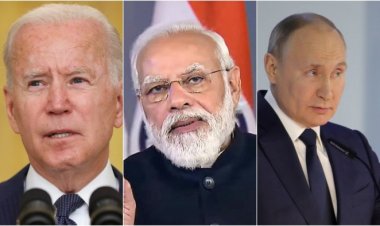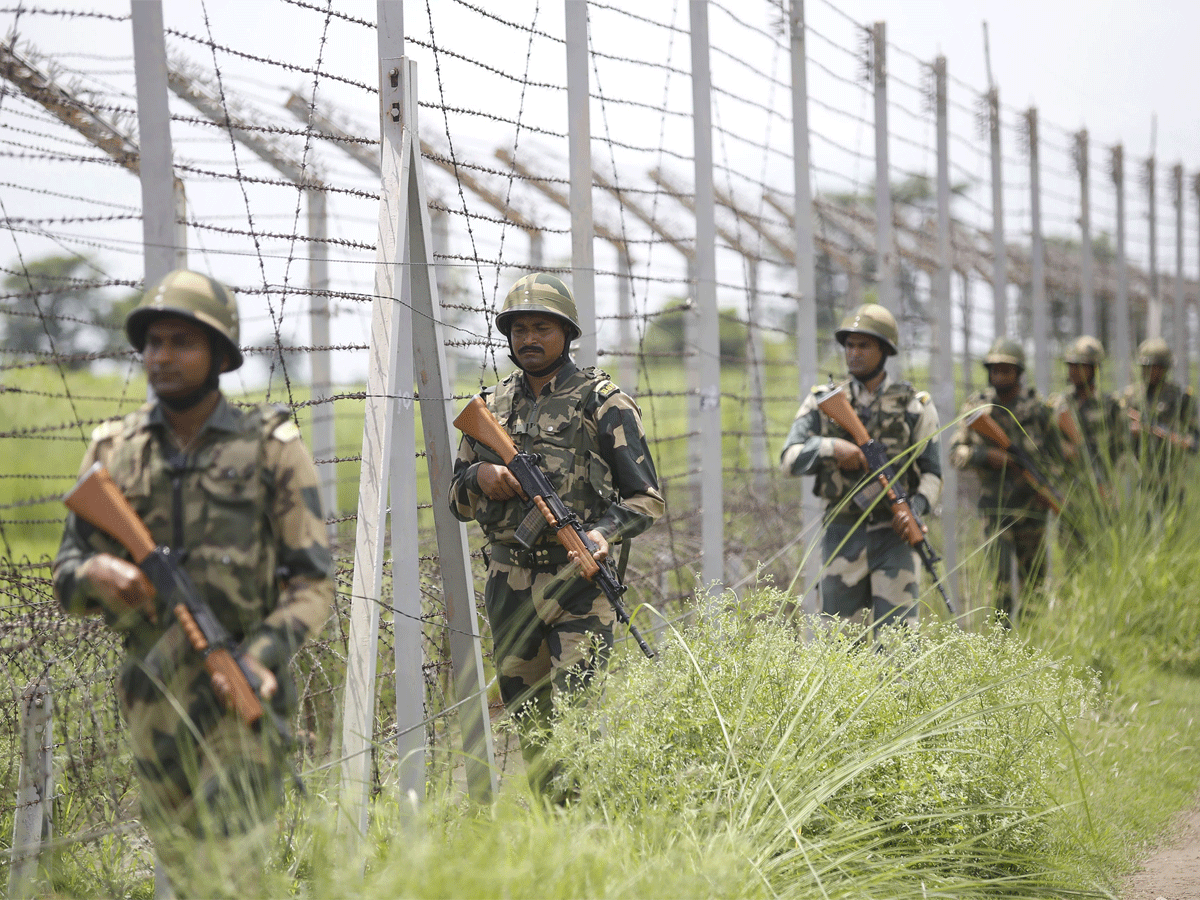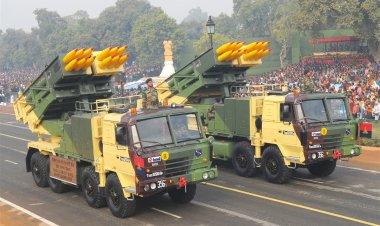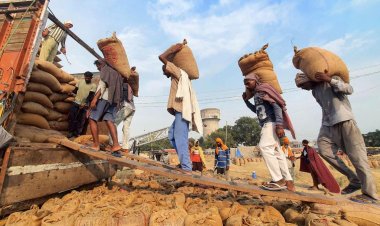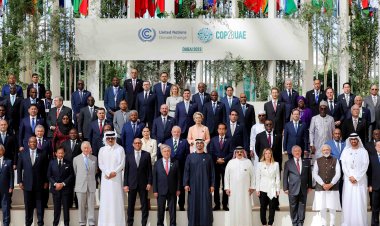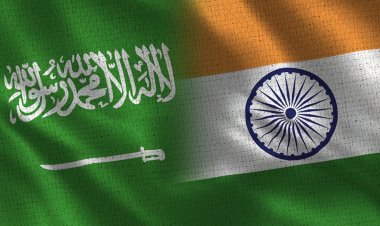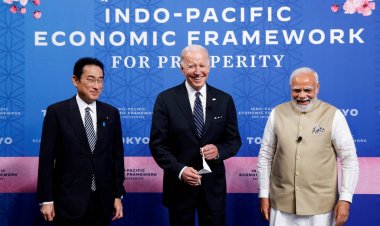India and G20: Role and Relevance
The article discusses India's engagement with G20. It further discusses India's objective to highlight issues such Financial crisis, South-South Cooperation, and Climate change.
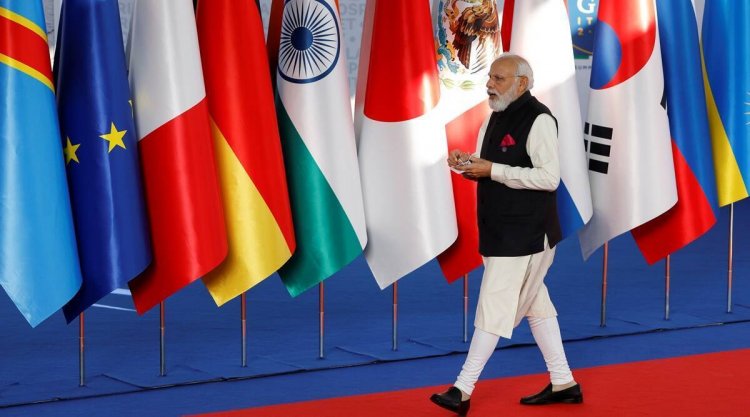
Analysis
By Monika
Introduction
An intergovernmental organization called the G20 includes the European Union and 19 other nations. It seeks to address important challenges like international financial stability, reducing greenhouse gas emissions, and sustainable development. The G20 represents the majority of the world's greatest economies, including both industrialized and developing countries; it is responsible for over 80% of the world's gross domestic product (GDP), 59-77% of its trade, two-thirds of its population, and 60% of its geographical area. G20 has an annual rotational structure for the G20 presidency to ensure regional balance. In this regard, 19 nations are divided into five groups, each with a maximum of 4 nations, to choose which nation will hold the president. Each group takes turns holding the presidency. A nation from another group is chosen annually by the G20 to serve as president. India is in Group 2, with Russia, South Africa, and Turkey. According to the Ministry of External Affairs (MEA) announcement, India will host the G-20 (Group of 20) leaders' summit in New Delhi in 2023. India took over the G20 presidency starting on 01 December 2022 following the 17th Heads of State and Government Summit of the G20, which took place in Indonesia in November 2022. India will hold the G20 presidency for a year.
Origin
In the year 1999, the G20 was established in response to various global economic problems, especially the financial crisis of the late 1990s. It has met at least once a year since 2008, with summits attended by the heads of state or government, the finance minister, the foreign minister, and other top officials from each member. The summits are open to participation from other nations, international organizations, and nonprofit organizations, some of which are invited on an ongoing basis. As an informal group, it includes major national economies of the global world, such as Argentina, Australia, Brazil, Canada, China, France, Germany, India, Indonesia, Italy, Japan, Korea, Mexico, Russia, Saudi Arabia, South Africa, Turkey, United Kingdom, United States, and the European Union. The group designated itself the principal forum for global economic and financial cooperation during its summit in 2009. The various G20 summits were dedicated to promoting high-quality broadband networks in G20 nations, closing the digital divide in G20 countries, and releasing infrastructure investment.
India's engagement with G20
India's involvement in the G20 process results from the recognition that as a significant developing country, India has a crucial stake in the stability of the global financial and economic system. India's objective at the G20 Summits is driven by the need to improve financial system inclusion, prevent inclinations toward protectionism, and, most importantly, ensure that developing nations' growth prospects are not harmed. India has sought to keep the G20's discussions on creating a framework for robust, sustainable, and balanced growth, improving global financial regulatory frameworks, updating Bretton Woods institutions, enabling trade finance, and advancing the Doha agenda dynamic and credible. India attempted to refocus the group's resources on growth, jobs, fiscal consolidation, rebalancing demand from the public to the private sector, and concerns emerging from internal imbalances within the Eurozone as co-chair of the Framework Working Group on Strong, Sustainable and Balanced Growth. India continues to be dedicated to the G20 process to establish a strong, inclusive, and representative global financial and economic system.
As a part of the G20 structure and functioning, all the member states rotationally get a group presidency. To ensure the continuity of the G20 agenda, it also has a “Troika”. The term "troika" refers to the G20's top hierarchy, which comprises the present, past, and future presidents. For the first time this year, “Troika” would include three developing nations and rising economies, giving them a stronger voice. The troika would, this time, consist of Brazil, Indonesia, and India. In terms of both geopolitics and the energy transition, India is in a special position at the G20. I believe India would maintain its COP27 position at the G20. Therefore, the G20 will also discuss the issue of access to funds and the developed world's contribution to resilience, medicine, and adaptation, in addition to being addressed particularly at the COP. Also, India must push for international institutional reforms to reflect modern realities to maintain its dominating position within the G20.
India as G20 Presidency: Key takeaways
India is scheduled to host more than 200 G20 events under its presidency. The G20 Leaders' Summit at the Heads of State and Government level is slated to take place in New Delhi on September 9 and 10, 2023. Expectations are high domestically and internationally because India will host an event of this size while also serving as the SCO chair in 2023. India has a special opportunity through the G20 to streamline issues, attract more attention to long-term strategic goals, and consolidate and coordinate South-South Cooperation. India has highlighted important issues for developing nations in various social and economic sectors, and it will pay particular attention to those that affect the most marginalized and vulnerable people. These include, among others, the Lifestyle for the Environment (LiFE) movement, women's emancipation, digital public infrastructure, global food and energy security, green hydrogen, disaster risk reduction and resilience, and multilateral reforms. They also include the circular economy, disaster risk reduction, and resilience financing. India can ensure that a strong gender and inclusive perspective are cross-cutting and the standard in all of these tracks and activities throughout the year, providing a cutting-edge framework that other nations can use moving forward.
As the G20's hosting nation, India will extend invitations to Bangladesh, Egypt, Mauritius, the Netherlands, Nigeria, Oman, Singapore, Spain, and the UAE as guest nations. India sees it as a new responsibility and a sign of the growing trust the rest of the world has in it. India has a special responsibility to advance the global agenda on urgent problems of international significance during the G-20 presidency. India's message and overarching aspirations for the globe would be reflected in the G-20 presidency's logo, theme, and website. Due to factors like international conflicts, the reorganization of global supply lines, record-high global debt, climate change, etc., this year will be extremely important. The G20 presidency presents a rare branding opportunity for India's recent successes. This includes the capacity to tackle COVID-19 domestically and internationally through India's vaccine diplomacy, its digital revolution, the reworking of global value chains, yoga, Ayurveda, etc. It serves as a global forum for debating and making decisions about financial architecture, economic cooperation, and other topics.
In a recent event, Prime Minister Narendra Modi presented the logo, theme, and website for India's G20 presidency and stated that this is a proud moment and a fantastic opportunity for India. All Indians should be proud of it since it would make them more renowned. He also stated that the emblem, theme, and website of India's G20 presidency, convey the nation's "message and overriding priorities" to the rest of the globe. India has the potential to demonstrate to the rest of the world how a democratic culture limits the severity of conflicts. Indian Prime Minister Modi also emphasized sustainable development while stating that environmental protection and development (Prakriti and Prakriti) coexist.
Critical analysis
In a nutshell, one can assume that India has the chance to take advantage of the G20 discourse and participation in a long-lasting way for the nation and the world with a clear focus on people and the environment. Our goal of a more just, sustainable, and equitable future has been stated; this goal can be achieved by developing a framework and vision that mainstreams a gender lens into our general strategy. In 2023, it is time to integrate the ideas of inclusivity into the larger agenda to build a system that can be sustained in the face of a global recession and escalating food and energy problems. While it's possible that gender wasn't considered when the G20 was created, its inclusion is now more important than ever. Planning for economic recovery and progress without considering women's emancipation is no longer wise. India will significantly contribute to the G20 to encourage quicker, sustainable, and inclusive growth as the second most populous nation in the world, the largest democracy in the world, and the third largest economy in PPP terms. The G-20 presidency will put India on the international scene and give it a chance to promote its goals and storylines. Additionally, it would offer a special chance to highlight India's advancements and diverse and rich cultural history.
Disclaimer: This paper is the author's individual scholastic contribution and does not necessarily reflect the organization's viewpoint.





